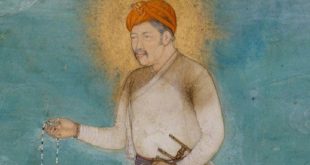This presentation is based on the book “Music & Singing in the Balance of Islam” (Arabic) by Shaykh Abdullah al- Juday (2004)

Summary – The Balanced Fatwa
Music & Singing are types of lahw (entertainment, amusement, frivolity, sport, etc.). Thus, they are acceptable and even encouraged at times in moderation in the Sunnah, just like poetry, humour, laughter, etc. However, excessive use of lahw may deaden the heart and our spiritual faculties. The question is to find the Balance …
Introduction
Music & singing are types of sounds. All worldly matters (including sound) are in principle lawful (halal) unless there is a clear-cut prohibition in the Qur’an and/or Sunnah.
Worldly Matters are Lawful unless Proved Otherwise
It is He who has created for you whatever is in the earth, all of it.
Al-Baqarah (The Cow, 2:29)
But do not say – for any false thing that your tongues may put forth – “This is lawful, and this is forbidden,” so as to ascribe false things to Allah. For those who ascribe false things to Allah, will never prosper.
Al-Nahl (The Honey-Bee, 16:116)
Qur’an & Hadith
There is no clear-cut ayah of the Qur’an specifically about music and/or singing. There are some ahadith that appear to prohibit music/singing. The vast majority of these are very weak and/or fabricated
Claims of Ijma’ (Consensus)
Many people claim that there is Ijma’ (Consensus) that music is prohibited, but this is utterly unproven & a baseless claim. A holistic, contextualised reading of the Qur’an & Hadith/Sunnah enables us to arrive at the position on Music/singing that is already outlined under “Summary” above.
Arguments from the Qur’an for Prohibiting Music & Singing
1- The Voice of Satan?
Allah (God) says to Iblis (Satan):
Lead to destruction those whom you can among them, with your (seductive) voice …
Surah al-Isra’ (The Night-Journey, 17:64)
Mujahid allegedly said that this means:
Wind-instruments …
Mujahid also allegedly said that it means: play & amusement or
entertainment & singing
His teacher Ibn ‘Abbas allegedly said that it means:
Every caller to the disobedience of God.
Imam Tabari summarised: Allah did not specify one voice over another, so it refers to every voice calling to Satan and his actions and his obedience in opposition to the obedience of Allah …
2- Idle Talk / Tales
… But there are, among the people, those who purchase idle tales (lahw al-hadith) to mislead from the Path of Allah without knowledge and throw ridicule (on the Path): for such there will be a humiliating penalty.
Luqman (31:6)
Mujahid allegedly said: Lahw refers to drums (??? – nothing to do with tales)
Ibn ‘Abbas, Ibn Mas’ud & others definitely said: Lahw al-hadith refers to singing.
… But there are, among the people, those who purchase idle tales to mislead from the Path of Allah without knowledge and throw ridicule (on the Path): for such there will be a humiliating penalty.
This ayah was revealed regarding Ibn Ubayy, Chief of the Hypocrites, who bought singing-slavegirls and held sessions promoting vice and opposing virtue and Islam. The ayah applies to buying songs, poetry, stories, fiction, images, plays & films etc. with the purpose of misleading people from the Path of Allah and ridiculing it.
Like this:
Like Loading...
 Sri lanka Muslims Web Portal Diversity and Inclusiveness
Sri lanka Muslims Web Portal Diversity and Inclusiveness





One comment
Pingback: Usama music | Greenjobrecruiter